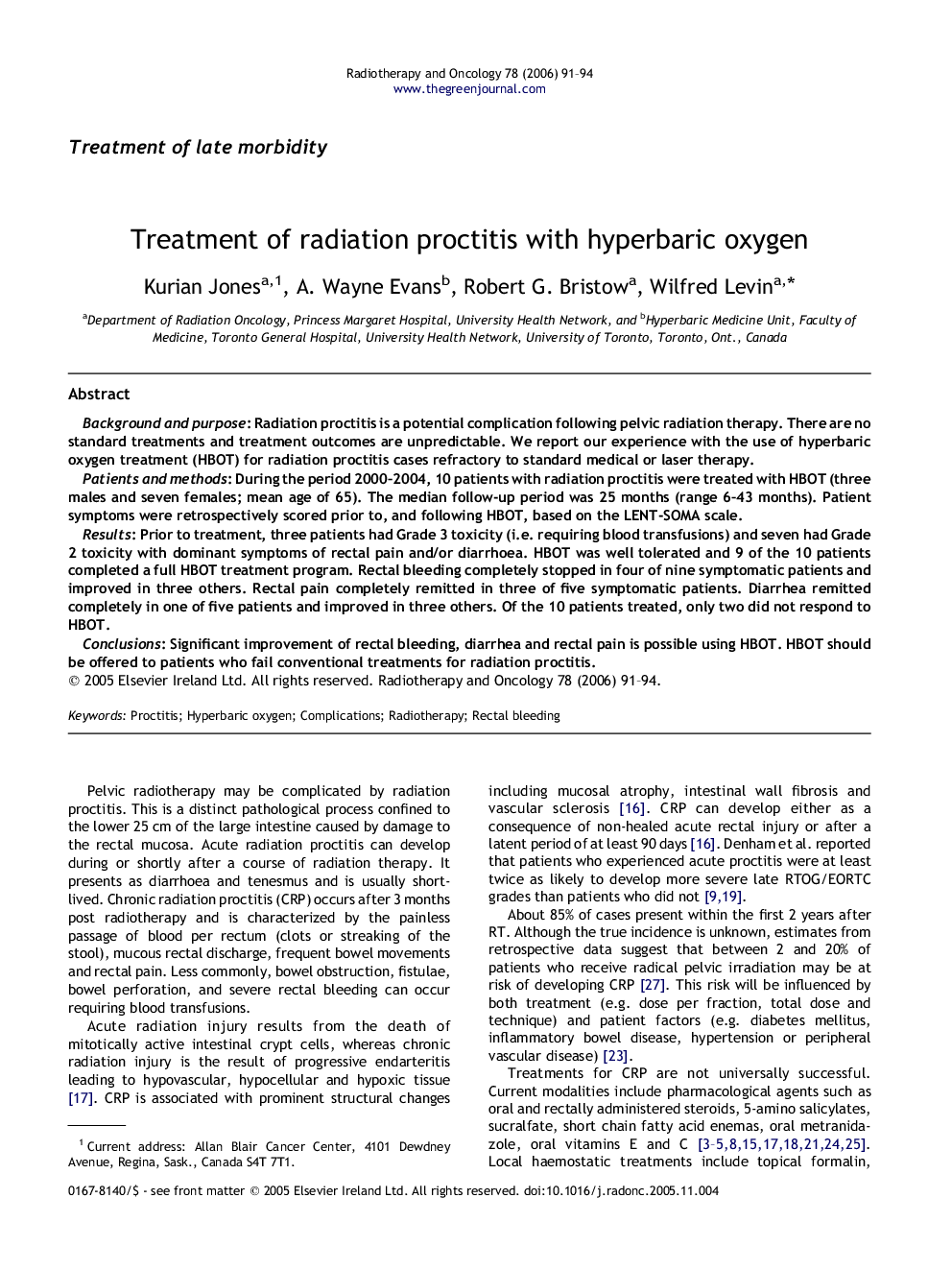| Article ID | Journal | Published Year | Pages | File Type |
|---|---|---|---|---|
| 2161270 | Radiotherapy and Oncology | 2006 | 4 Pages |
Background and purposeRadiation proctitis is a potential complication following pelvic radiation therapy. There are no standard treatments and treatment outcomes are unpredictable. We report our experience with the use of hyperbaric oxygen treatment (HBOT) for radiation proctitis cases refractory to standard medical or laser therapy.Patients and methodsDuring the period 2000–2004, 10 patients with radiation proctitis were treated with HBOT (three males and seven females; mean age of 65). The median follow-up period was 25 months (range 6–43 months). Patient symptoms were retrospectively scored prior to, and following HBOT, based on the LENT-SOMA scale.ResultsPrior to treatment, three patients had Grade 3 toxicity (i.e. requiring blood transfusions) and seven had Grade 2 toxicity with dominant symptoms of rectal pain and/or diarrhoea. HBOT was well tolerated and 9 of the 10 patients completed a full HBOT treatment program. Rectal bleeding completely stopped in four of nine symptomatic patients and improved in three others. Rectal pain completely remitted in three of five symptomatic patients. Diarrhea remitted completely in one of five patients and improved in three others. Of the 10 patients treated, only two did not respond to HBOT.ConclusionsSignificant improvement of rectal bleeding, diarrhea and rectal pain is possible using HBOT. HBOT should be offered to patients who fail conventional treatments for radiation proctitis.
